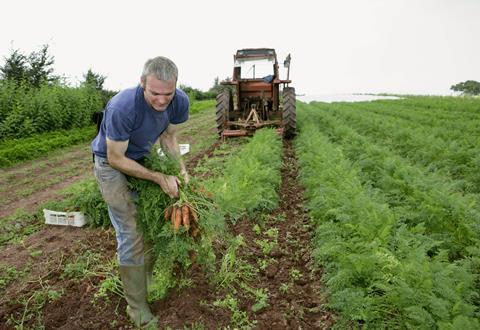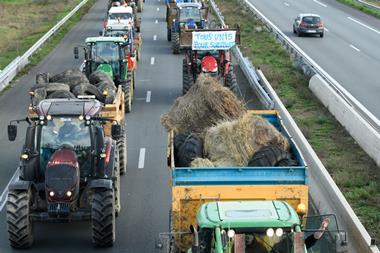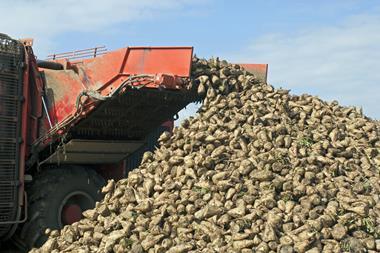
The next government should match existing targets for the environment and climate mitigation with similar ambitions for Britain’s food security, the NFU has urged.
Speaking after it published its “manifesto” for the next general election, the farming union today said food production targets would be crucial for whoever forms the next UK government – with the issue of food security a potentially key vote-winner.
It comes as a poll by the NFU of 2,135 adults in England and Wales in October revealed strong public support for the work done by the farming sector – with 84% of people feeling food production targets were either as important or more important than environmental targets for farming.
A further 82% thought it would be a good idea for the government to set targets to increase British food production, revealed the NFU manifesto document, titled Farming for Britain’s Future.
The research also showed 66% thought the main political parties’ plans on farming would be one of the issues that affected who they voted for at the next election. Some 66% also thought a commitment to a long-term plan for food and farming would be an important factor in who they vote for at the next election.
Meanwhile, 71% felt farmers did not get enough credit for keeping food on our shelves, and 75% called for the creation of a Sage (science advisory group for emergencies) committee for food, farming and agriculture so government could better plan and navigate food and farming emergencies.
Alongside bolstering food production and food security, other “key asks” in the NFU election document include a call for more incentives to cut emissions and a minimum five-year rolling seasonal worker scheme and annual free trade agreement assessments – to “quantify the cumulative impact of FTAs on trade balance, sourcing standards and domestic food production”.
The NFU is also calling for minimum standards “to promote a fair and functioning supply chain” with arbitration or oversight to uphold the standards, as well as incresaing the the powers and resource of the Groceries Code Adjudicator.
“Food is something that connects us all – we cannot live without it,” said NFU president Minette Batters.
“All our research shows the British people really value our farmers and growers for the work they do day in, day out to feed the nation,” she added.
“Shoppers want to be able to go into a supermarket and have the option to buy quality, high-welfare, environmentally-friendly food and we know the availability and affordability of food is high on people’s minds. But with food production under increasing pressure – not least from record production costs and the biggest shake-up in agricultural policy since 1947 – we need policies in place that support British farming, with all Whitehall departments developing policy through the lens of food production.”
The rural vote would be important in the next election, Batters said. “But it’s clear people living in towns and cities also want to know how parties plan to boost sustainable, home-grown food production as well as care for the environment and tackle climate change”, she added, before pointing to the manifesto document’s data in proving “it will influence who they vote for at the ballot box”.
“We must not fall into the trap that we can simply import our food needs from other countries – we’ve seen that approach fail before with empty supermarket shelves and we know there is strong public opinion against importing food from elsewhere produced in ways that would be illegal here,” she urged.
“That’s why we are asking for targets for British food production, just as the government has rightly legislated for targets on the environment, green energy and climate change. Food has to be given the same status.”



















No comments yet